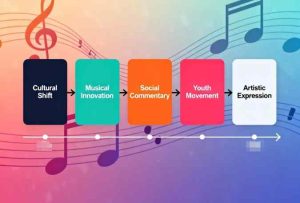
Pregnancy is a story written week by week, not just in ultrasounds and test results but in moments both subtle and grand. It begins, often, with a whisper—tender breasts, a missed period, an inexplicable fatigue. And from that point on, your body becomes a quiet architect of life. For many, the path is filled with anticipation and nervousness, a dance between joy and discomfort, all while googling things like “implantation bleeding” or “is it safe to eat sushi at 6 weeks pregnant?”
The early weeks often feel the most uncertain. You might still be wrapping your mind around the fact that you’re pregnant, while also navigating the rollercoaster of the first trimester. Hormonal changes can bring nausea, exhaustion, mood swings, and a strange aversion to once-beloved foods. Hannah, a nurse and first-time mom, found herself crying over a spilled glass of orange juice. “It wasn’t the juice,” she laughed. “It was just everything. I was overwhelmed and didn’t even know why.” This emotional flux is common, and not a sign of weakness, but a powerful expression of the body’s transformation.
Around eight weeks, the baby—still no bigger than a raspberry—already has a beating heart. The magic of that moment, often captured during a dating ultrasound, leaves many speechless. It’s no longer just a line on a stick. It’s a person, growing inside you, reshaping your body and your world. Prenatal care becomes a part of life, with checkups to monitor fetal development, prenatal vitamins loaded with folic acid, and gentle lifestyle shifts to support a healthy pregnancy. The phrase “high-risk pregnancy” might come up for some, due to age or preexisting conditions, and that can be frightening. But with good care, it often just means more monitoring, not more danger.
By the end of the third month, the nausea may finally begin to ease, though not for everyone. Fatigue, though, tends to linger a while longer. You might start noticing subtle physical changes—slightly fuller breasts, a tightening waistband, and a tenderness in your lower belly. You’re still in the stage where strangers can’t tell you’re pregnant, but your body definitely knows. Sophie, a pastry chef, found her sense of smell heightened to the point that she had to step out of the kitchen whenever cinnamon rolls came out of the oven. “It was too much,” she said. “Sweet smells made me queasy, and I used to love baking.”
As the second trimester begins, a gentle calm often arrives. This is when many women report feeling their best. Energy returns, morning sickness wanes, and the world begins to feel a little more manageable again. Around 16 to 20 weeks, you might feel the first flutters of movement, often described like butterflies or gas bubbles. For some, like Jenna, it was in the middle of a meeting. “I just froze,” she recalled. “There it was. My baby. Saying hello.”
It’s also during this stage that anatomy scans and gender reveal appointments take place, and the baby’s growth becomes much more visible. Friends and coworkers begin to notice the bump, and maternity clothes might finally replace stretchy waistbands and oversized sweaters. There’s a certain pride in dressing a growing belly. But there can also be unexpected insecurities, especially if the bump doesn’t grow “on schedule” or if weight gain becomes a source of anxiety. Social media comparisons don’t help. That’s why speaking openly with your OB-GYN about what’s normal—and not relying too heavily on influencers—can keep expectations grounded in reality.
Back pain and round ligament pain may creep in by the fifth month. Sleeping might become more awkward. Many pregnant women invest in pregnancy pillows or support belts to ease the discomfort. Danielle, who commuted by train every day, started carrying a small lumbar cushion and swore it changed her life. “I stopped arriving to work feeling like I’d been hit by a truck,” she joked. Comfort becomes more than a luxury—it becomes a necessity.
The sixth and seventh months bring more pronounced movements. Your baby can now hear your voice, and many moms begin reading out loud or playing music. Some even record lullabies or messages to play during delivery. There’s an intimacy to this stage that’s hard to describe, when you feel like you’re never truly alone. Caroline, a mother of three, called her belly “my little companion” during her second pregnancy. “She would kick when I laughed too hard or when I’d lie down after dinner. It felt like we were already connected.”
As the third trimester approaches, the pace of pregnancy shifts again. The excitement builds, but so does the physical toll. Your center of gravity changes, your feet swell, and for many women, sleeping becomes nearly impossible. Heartburn, shortness of breath, and frequent bathroom trips become your new normal. Still, there’s beauty here too. Baby showers, nursery decorating, and finally picking a name bring a sense of joyful preparation.
Prenatal classes become valuable, even essential, as your due date draws near. Learning about labor positions, pain management options, breastfeeding tips, and postpartum recovery helps you feel more empowered. Rachel, who gave birth during the pandemic, did all her classes online. “It wasn’t ideal, but even just understanding the stages of labor made me feel less afraid. Knowledge helped me feel strong.”

By the eighth month, many women enter what they lovingly call “the waddling phase.” Everything feels a bit heavier. Even walking can feel like a small workout. But there’s often humor in it too. Claire, who was nine months pregnant in August, swore by her inflatable foot bath and portable fan. “I just sat by the AC with my feet in cold water and binge-watched every baby documentary on Earth.”
At this point, the concept of “birth plan” takes center stage. Some women meticulously plan natural births with doulas and midwives, others prepare for scheduled C-sections or induction due to complications. There’s no one-size-fits-all path to delivery, and each choice deserves respect. What matters most is feeling supported and informed. Labor can be intense and unpredictable. Having a partner, doula, or friend who knows how to advocate for you makes all the difference. Emily, who had an emergency cesarean, remembered how her sister kept whispering, “You’re doing so good,” through her mask. “It was the only voice I could hear clearly. It kept me grounded.”
Then comes the final countdown. Those last days feel like an emotional seesaw—part excitement, part restlessness. You might be scrubbing baseboards at midnight or timing Braxton Hicks contractions wondering, “Is this it?” And when it finally happens—when your water breaks, or the contractions don’t stop—you realize nothing could have fully prepared you. But somehow, you’re ready.
From the faintest test line to the moment you first hold your child, pregnancy reshapes not just your body but your entire perspective. It slows you down, makes you listen closer, forces you to care for yourself in a deeper way. It connects you to a legacy of motherhood that spans centuries, cultures, and experiences. And whether your story is smooth, complicated, joyful, or full of unexpected turns, each week is a chapter worth remembering 📖








